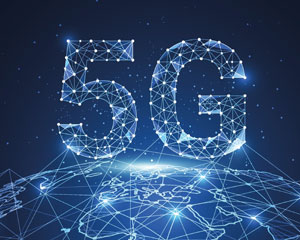Blitz News Digest
Stay updated with the latest trends and insights.
Connecting the Dots: 5G and the Internet of Everything
Discover how 5G powers the Internet of Everything and transforms our world. Don't miss the future's game-changing connection!
How 5G is Revolutionizing the Internet of Everything
5G technology is set to revolutionize the Internet of Everything (IoE) by providing extremely high-speed connectivity, lower latency, and the capacity to connect a staggering number of devices simultaneously. This enhanced connectivity enables a seamless flow of data, allowing smart devices to communicate and operate in real-time. With the advent of 5G, industries such as healthcare, transportation, and manufacturing are on the brink of transformation, paving the way for innovations like remote surgeries, autonomous vehicles, and smart factories.
The impact of 5G on the Internet of Everything extends beyond mere connectivity; it allows for the integration of AI and analytics directly into IoE systems. For instance, smart cities can leverage 5G-enabled networks to optimize energy consumption, enhance public safety through surveillance systems, and improve traffic management via connected vehicles. As these technologies converge, the potential for creating more efficient, responsive, and sustainable environments is vast, making it essential for businesses and individuals alike to embrace the 5G revolution.

Understanding the Synergy Between 5G and IoT: What You Need to Know
The emergence of 5G technology has set the stage for a revolutionary synergy with the Internet of Things (IoT). This new generation of mobile connectivity offers significantly faster speeds, lower latency, and the capability to connect a vast number of devices simultaneously. As a result, businesses and individuals are beginning to explore the potential of 5G-enabled IoT applications, ranging from smart cities to industrial automation. Understanding this synergy is crucial, as it not only enhances the functionality of IoT devices but also enables real-time data processing and analytics, ultimately leading to smarter decision-making.
To grasp the full implications of the 5G and IoT relationship, it's important to consider several key aspects:
- Enhanced Connectivity: 5G can support millions of connected devices within a small area, making it a perfect fit for IoT applications.
- Reduced Latency: With 5G, the average latency is expected to drop significantly, which is essential for time-sensitive IoT operations.
- Broader Application Spectrum: The high-speed capabilities of 5G empower diverse innovations in medical technology, automotive industries, and seamless consumer experiences.
Exploring the Benefits of 5G Connectivity for Smart Cities and IoT Devices
The advent of 5G connectivity is set to revolutionize the landscape of smart cities and IoT devices. With significantly higher data speeds, lower latency, and greater capacity compared to previous generations, 5G allows for seamless communication between devices, enhancing the efficiency of urban infrastructure. For instance, real-time information exchange can optimize traffic flow, reduce energy consumption, and improve public safety by connecting various IoT systems, including smart traffic lights, surveillance cameras, and environmental sensors. This interconnectedness facilitates a more sustainable urban environment, showcasing the potential of smart cities to leverage technology for improved quality of life.
Additionally, the implementation of 5G technology empowers cities to harness the full potential of IoT devices. With the ability to support a vast number of devices in a limited geographic area, 5G can enable the deployment of smart grids, advanced waste management systems, and enhanced public transport solutions. According to industry experts, this level of connectivity will not only streamline city operations but also foster innovation in services, creating a more responsive and dynamic urban ecosystem. As we continue to explore the benefits of 5G connectivity, it becomes clear that integrating this technology into smart city initiatives is essential for future-proofing urban environments.